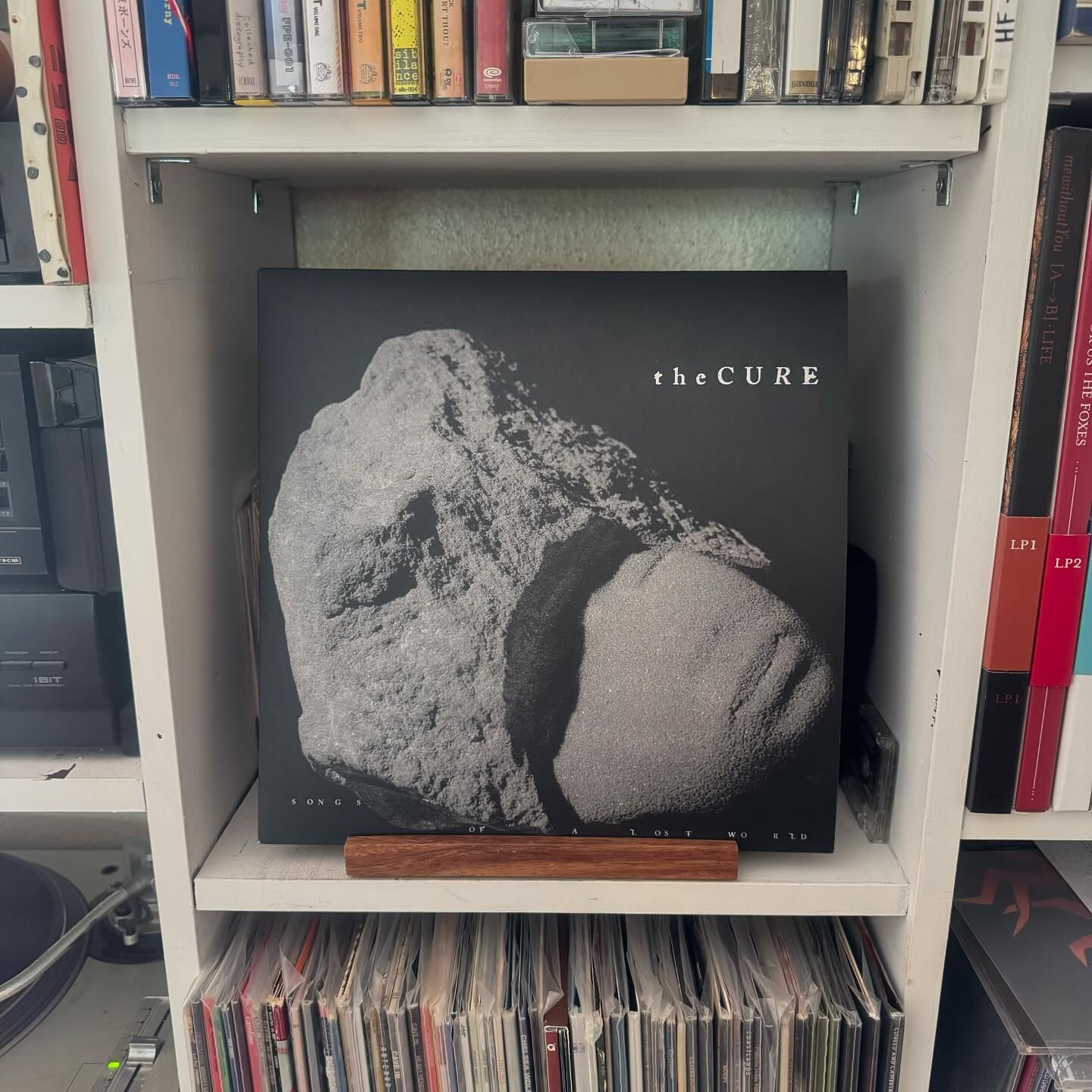
Man, did I get really into the Cure at the right time or what.
Long time readers will remember how long my road to Cure fandom, which trekked from detached respect to casual enjoyment to an explosive burst of superfandom just last year. Across that time, I have mourned many times that I didn’t get into them as a teenager, when their brand of emotional rawness would be the most potent.
But as it turns out, Robert Smith & Co. have a really great handle on middle aged angst as well. Songs of a Lost World offers a profound sense of mortality and gothic romanticism set to as archetypal a Cure Record as could be devised.
According to the 80s/90s pop culture mythos, one of the most quintessential angsty adolescent experiences is listening to the new Cure record and poring over the lyric sheet. That sort of close listening was a dear escape for me as a youth, but given my late arrival to the group, I felt like I had missed that experience. But there was something about staying up on Halloween night to listen to its midnight premiere and playing Zelda reconnected me to the truest bits of my teenage self still inside me, even more so a couple days later when my vinyl copy and I dove into the liner notes for the full forty-nine minute runtime. I imagine it has to feel a bit like hearing Disintegration for the first time in 1989, if I had been born a little earlier.
But where Smith’s emotionally resonant lyricism has often been dismissed as angsty winging, there’s a deep sense of loss and despair in his words here that come from the furnace of age. He’s sixty-five now, and he wears every day of that on the lyrics here—and none of it one his voice, that sounds exactly the same as he ever has. He grieves the losses that age brings; both the metaphorical loss of things like hope and ambition and the literal loss of his brother and parents in the years preceding the album’s writing (which was concluded in 2019).
“Alone” and “Endsong” bookend the record with two sides of the same idea. The latter answers the former’s repeated question of “where did it go?” with the bereft echo of “it’s all gone.” In the moments in between, he wrestles with the various threads that tie us together. “And Nothing is Forever” considers the foolishness of promising eternal love in a universe governed by entropy. “Fragile Thing” finds that same love at its breaking point. “Warsong”—which catapulted itself into my top ten Cure songs on my first listen—mourns the battle lines we draw between ourselves and others (I’ve given it quite a few rage listens the last few days). “Drone:Nodrone” waxes on the realization that age doesn’t always bring wisdom. “I Can Never Say Goodbye” lifts his grief over his brother’s death into the air like an offering. “All I Ever Am” finds Bob wrestling with his own sense of identity as he continues his “weary dance with age.” These are weighty subjects, but he handles them with a deft hand, offering up the sort of Gothic (in the literary sense) romanticism that lesser poets turn into monochromatic wallowing.
All of that is over one of the best sounding records I have ever heard. The production is absolutely flawless, especially the growling bass tone of Simon Gallup, who shines as brightly here as he ever has. Disintegration is obviously the closest analog to the sonic palette; the Solina strings and layers of multiple Bass VI melodies that built that record’s staggering atmosphere are present on each track. But there are also plenty of flashes of less critically-friendly moments in their discography. The roaring guitar solos in tracks like “Warsong” and “Endsong” echo the darker moments of Kiss Me Kiss Me Kiss Me, Wish, and Bloodflowers. There’s even the bits of aggression of The Cure in “Drone:Nodrone” and “All I Ever Am.” It also offers up a number of proofs for how influential the Cure was for post rock acts like Mogwai and Sigur Rós. This is most obvious in “And Nothing is Forever,” which feels like a gothic mirror of “Staralfur” and “Hoppipola.”
I didn’t know bands could make records like this this deep into their career. It is at once a callback to their most seminal works while establishing itself as seminal itself. I keep wanting to say it’s like Paul McCartney releasing a second Ram, but the fact of the matter is that Disintegration is such a singular album in itself that its hard to make a metaphor that makes sense. In a lot of ways, it feels like another recontextualizing of what “The Trilogy” is. OG fans used to use the term for the run from Seventeen Seconds to Pornography until Robert declared that Bloodflowers was the third part of a new trilogy that consisted of Pornography and Disintegration. I personally have never thought Disintegration felt like a sequel to Pornography anyway, and Songs of a Lost World feels way more like another return to the sonic cauldron that spawned Disintegration and Bloodflowers.
However you end up parsing its place in the catalog though, one thing is obvious: Songs of a Lost World has firmly cemented the Cure’s legacy as one of The Greatest Bands in the World. As the record brings a reevaluation to their legacy, I have seen people lift them into the upper echelon of the Rock and Roll pantheon alongside groups like Pink Floyd, Queen, Radiohead, and even the Beatles. And even though I’ve only been a real fan for a couple years, it’s about damn time.